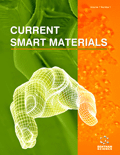Abstract
Background: Heterogeneous synthesis of nitrogen containing heterocyclic compounds such as dihydropyrimidin-2(1H)-one/thione derivatives is an important research. Use of nanocrystalline ZnO has demonstrated for heterocyclic compounds which are routinely used in medicinal chemistry due to their therapeutic and pharmacological properties. In this context the solvent free synthesis of pyrimidine derivatives are reported.
Methods: Synthesis of ZnO nanomaterials is carried out by precipitation method, which is further used for synthesis of dihydropyrimidin-2(1H)-ones/thiones derivatives. Stoichiometric amount of aromatic aldehydes (1), urea (2) and ethyl acetoacetate (3) were taken in beaker. Then, 10 mmol percent nanocrystalline ZnO powder was added as a catalyst in the reaction mixture which was subjected to heated at 55°C in microwave oven.
Results: Microwave assisted synthesis of 3,4-Dihydropyrimidin-2(1H)-ones/thiones has been successfully carried out using eco-friendly ZnO nanoparticles as catalysts. Nanocrystalline ZnO of particle size in the range 60-80nm was prepared by decomposing the Zinc Oxalate intermediate at 500ºC XRD analysis indicates the formation of highly crystalline hexagonal phase of ZnO. Solvent free synthesis using reported method have confer 95% yield which is greater than organic solvents such as DMF, Dioxane, THF, Toluene for heterogeneous synthesis.
Conclusion: Successfully accomplished ‘green’ synthesis of dihydropyrimidone/thiones derivatives was demonstrated. Use of nanocrystalline ZnO is found to be an efficient catalyst for heterogeneous Biginelli reaction. Solvent free reactions gave the better yield compared to the use of organic solvents.
Keywords: Biginelli reaction, green synthesis, heterogeneous catalysis, nanocrystalline ZnO.
Graphical Abstract
 25
25 2
2




